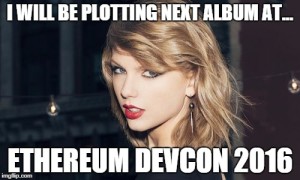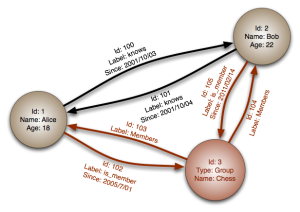Garry has long been a go-to resource for many topics sounding the future of energy, fuel cells and solar. The New York Times new he was the right person to speak with when they decide to dive into the peer to peer “Solar Experiment” that is the Brooklyn Microgrid.
People
The Tech Crunch forums lit up with debate about “LinkedIn Killing the Resume”
Here’s an excerpt from the piece on Tech Crunch that had everyone talking. “Imagine a future where individuals can illustrate their progression of lifelong learning and training and its links to their real-world performance. In this version of the future, the once-ubiquitous résumé has been ousted by the experience graph.” Read The Full Article
Real Estate Council of Austin Publishes two part series on transportation featuring Garry Golden
The two-part series focuses on getting the audience to take a look into the future of what transportation might be like in Austin, Texas by “Tapping Your Inner Futurist”. You can take a look a part one and part two of the series at the reca.org site.
Tech Crunch Asks Garry: Will Embedded Fuel Cells Run The World?
Here’s an excerpt from the piece. “People love their smartphones but hate poor battery life. We love having access to the world’s information at our fingertips but tire of the need to constantly plug into the world’s electricity grid. The recharging model of batteries fails us — the marketplace is ready for a new approach to portable power. ” Read More
Taylor Swift releasing next album on Ethereum’s Blockchain?
Embracing the Connected Data Vision of LinkedIn’s Economic Graph
Possibility: By 2025, LinkedIn’s Economic Graph will be its most important commercial product and widely seen by policy-makers and pundits as the most insightful economic, education and social policy tool in the world as it helps us confront challenges of unemployment, skills gaps and creating a positive culture of an engaged workforce. Read more
Community Assets and Aging Demographics
The Institute for the Future (IFTF) is leading an important foresight research series called Aging Forward with a focus on care-giving and technology. In this 90 minute webinar IFTF looks at community assets and equality issues with two guests who are working to overturn assumptions about the challenges and opportunities ahead for an aging population:
- Ruth Finkelstein – Director of NYC Age Friendly initiative; New York Academy of Medicine (NYAM); Co-authored a report The Aging City
- Susan Poor – Director of Innovation at OnLok Lifeways
Direct Link to the 90 minute webinar
Key Concepts: Aging in Place; Active Aging; Creative Aging; Population Pyramid; Demographic Transitions; Sensors
Other aging demographic resources:
- Age in Place
- EnGage – Engaged Aging via Creative & Active Aging experiences in Southern California
- Lifetime Arts – Intersection of Aging & Arts
- Creative Aging Toolkit for Libraries
- National Center for Creative Aging
- Aging Smart Employer – Workforce Project
- NYC Age Friendly Project (Vimeo video)
- MetLife Report on Civic-Culture Institutions & Aging Populations
- RWJ Long-term Care Issues
- WNYC Interview with Ruth Finkeltstein – Aging & Long-term Unemployment (Feb 2014)
- US Administration on Aging
- Project Sandbox
Follow my Diigo tags on Aging
Tim Carpenter of EnGAGE
Related blog posts:
Learning Startup to Watch: Declara’s Vision of a Cognitive Graph
Declara is one of the most unique startups in the world of enterprise-scale learning platforms. The company has built an intelligent social learning system that is often referred to in the media as a combination of Google’s Knowledge Graph and Facebook’s Social Graph.
Declara’s vision is to create and leverage a Cognitive Graph that delivers neuroscience-inspired personalized learning based on the context of real-world experiences, intent, outcomes and social relationships.
The system aims to deliver content recommendations and facilitate the most appropriate social connections between learners across large organizations and social communities. The platform integrates the latest capabilities of artificial intelligence subdomains – machine-learning and deep-learning to scale-up predictive analytics and prescriptive learning experiences based on an individual’s intentions, capabilities and needs.
The company sees a very rich and untapped landscape of learning analytics that will benefit from neuroscience-based insights on learning experiences. The ‘adaptive’ and ‘intelligent’ labels simply mean that Declara’s infrastructure learns over time based on real-world interactions and outcomes.
Declara’s CEO Ramona Pierson (Twitter) has an amazing comeback life story and a brilliant mind that sees the convergence of neuro-cognitive science, intelligent social systems, semantic search, graph databases, et al. Co-Founder Nelson Gonzalez (LinkedIn; Twitter) brings a pragmatic and optimistic lens to learning analytics and the intersection of local cultural elements and semantic search.
Declara has a very clear scale-out oriented business model that targets large customers such as national government associations (e.g. Mexico’s SNTE, Australia’s CSE) and enterprises like Genetech. They picked a wonderful problem to solve. Declara is a startup to watch…!!
Learn More:
- Declara on Twitter
- Bloomberg article
- Business Week Interview Ramona Pierson Novemmber 2013
- Semantic Web blog post
Interesting links on cognitive graph:
- IBM is hiring an intern for Social Analytics and Cognitive Graph (umm!!);
- Nodus Labs Graph
- Garry’s tags on Machine-Learning; Deep-Learning; Graph; Adaptive; Watson
Videos
Ramona Pierson
Interview at 2014 Gigaom event
Ramona Pierson speaking
Nelson Gonzalez – 2010 brief interview – hopefully more Youtube clips will appear soon!
https://www.youtube.com/watch?v=xmjDVrz5X5g
New Blog for 2014
I have let go of a few years of blogs posts from garrygolden.net from 2008-2013!
Time to start fresh. Old URLs may still be live but not linked here!






